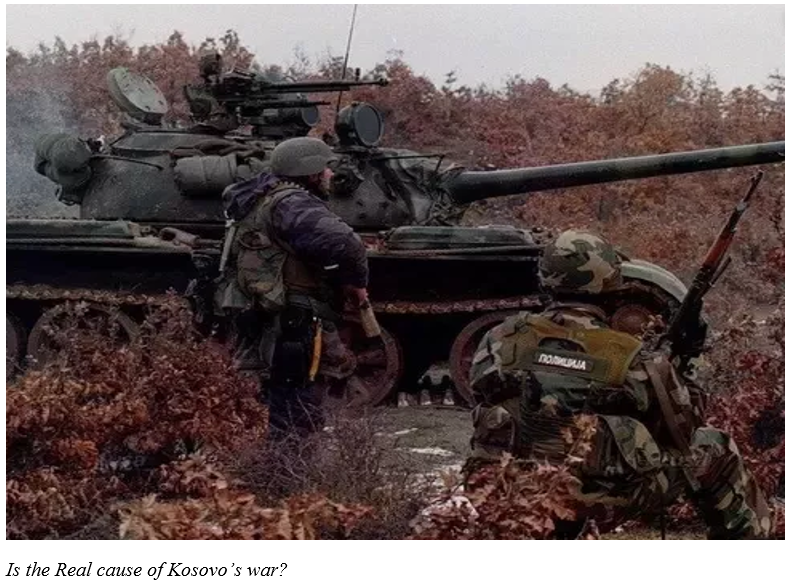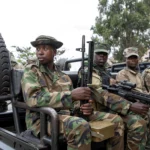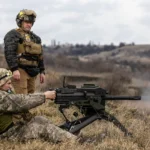When we talk about wars which happened in some years ago, we also remember the war in Kosovo. Today, we are going to look for the war that took many people’s lives in Kosovo.
It was self-declared independent country in the Balkans region of Europe. Although the United
States and most members of the European Union (EU) recognized Kosovo declaration of
independence from Serbia in 2008 after being long time controlled as part that has long been
considered of Serbia. Since the famed Battle of the Blackbirds in 1389 which saw Serbia fighting
off an Ottoman invasion near Kosovo’s present day capital Pristina, Kosovo has been thought of as a Serbian territory.
Subsequent battles in Kosovo stretching from 1389 to 1453 saw the defeat
of numerous Balkan armies against the Ottomans, essentially allowing Ottoman domination of
the region (Cameron Greene2017). This part has an area of 10,887 km² and people who are
living in this region are about 1,809,280 people, they speak two languages especially Albanian
and Serbian, and then they used to be called Kosovar.
As we have talked above about the Balkans region, this means the state of 11 countries where
Kosovo founded. Hence, according to the (Matt Rosenberg 2019), those countries are the
following below: Albania (2.9 million people), Bosnia and Herzegovina (3.5 million people),
Bulgaria (7 million people), Croatia (4.2 million people), Kosovo (1.8 million people),
Macedonia (2 million people), Moldova (2.5 million people), Montenegro (630,000 people),
Romania (19.7 million people), Serbia (7 million people), Slovenia (2.1 million people).

17 February 2008 Republic of Kosovo got independence, while it was long time without peace in
this part, in fact, this part had a lot of people who not followed what leaders said, because they
wanted to take this part and call it its own while was in not legal way, they used to kill people for
no reasons. During the war took place from February, 1998, through June, 1999, 67 (64%) of
105 deaths in the sample population were attributed to war-related trauma, corresponding to
12,000 (95% CI 5500-18,300) deaths in the total population, while the late of 1990s, 13000
people were died most of them ethnic of Albanians and after of 70 days by NATO air strikes
explored that 4500 people were missing (Valerie Plesch 2015).

According to the (Vladimir Nesic, 2017), after the implementation of this agreement, more than
300,000 Serbs and other non-Albanians from Kosovo and Metohija in fear of Albanian violence. The
KLA and after the conflict continued to commit atrocities against Serbian civilians.
NATO bombing of Yugoslavia in 1999, Kosovo came under UN administration. According to
Resolution 1244, Kosovo and Metohija is part of the Federal Republic of Yugoslavia, but it is
under UN control.
17 and 18 March 2004 happened to be massive ethnic cleansing of Serbs in Kosovo and
Metohija known as the March pogrom. Albanian extremists attacked the entire Serbian
communities and Serbian cultural and historical monuments.
Cause of War in the Kosovo:
In Macedonia are US troops … But despite this, they have big problems. Albanians occasionally occupied with weapons even some smaller towns. Macedonians have even rented Ukrainian Mi-24 (with crew) to combat the Albanian terrorists.

This war was the culmination of 121 years of struggle and suffering between the Albanians and
Serbians there beginning in 1878 and ending in 1999 according to the (Theodor Dushniku 2010)
in march 1989, he revoked Kosovo’s autonomy under Yugoslavia placing its Albanians under
direct control from Belgrade. Albanians protested against Milosevic’s repressive policies that
were illegal by Yugoslavia’s own 1974 constitution. But they were quashed.
For the next ten years, Kosovar-Albanians lived under a police state and experienced marginalization. They lost
the right to work in the public sector, use their own language and have an education.
U.S was said to be having a part in supporting Kosovo’s war against Serbia, where they said that
to take big role of making conflict with those two countries, Theodor said that U.S pick the side
of a pro-Russian ultra-nationalist authoritarian demagogue like Milosevic? Or the Albanians who
would be grateful for freeing them from his hateful ideology and oppression?
Luckily for the Albanians, their desire for freedom from Milosevic’s tyranny aligned perfectly with
the American desire to weaken a pro-Russian entity and gain more power against Russia.
Although the war ended in Kosovo 23 years ago, thousands of families still demand answers
from Serbian and Kosovar officials about their loved ones where
Serbia has never apologized for the war crimes committed under Slobodan Milosevic rule,
which led to NATO intervention in March 1999 (Eraldin Fazliu 2019)
Kosovo’s war took many people’s lives and hut more, where others injured and others were missing,
because of misunderstanding between the states of Balkans, especially Serbian and Kosovo in 1998.
U.S, Russian, France, and U.K used to fight for bringing peace and conflict solving for these state
and gave independence to Kosovo country. In 1999 June, when Slobodan Milosevic agreed to pull
his troops out of Kosovo, NATO stopped its air attracts against the former Yugoslavia.
Many people said that it’s the Americans won this war of Kosovo, but others refused, the reality is this; the American flag is the one been woven in the center of Pristina, Albanians are learning in Albanian history, (no more Lazar ullshit we had to
forcefully learn during Yugoslavia) were completely free from Serbian rule, and that is victory.









I don’t think the title of your article matches the content lol. Just kidding, mainly because I had some doubts after reading the article. https://www.binance.com/register?ref=P9L9FQKY